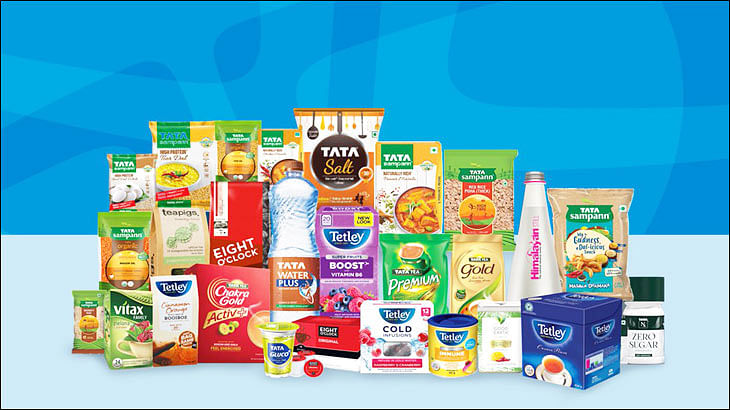As big FMCG businesses are entering the plant-based meat segment, they are also targeting to include non-vegetarians who are looking for alternatives to animal-based proteins.
Along with a sizable portion of vegetarians, major FMCG businesses are targeting non-vegetarian consumers who are looking for an alternative to animal protein by joining the plant-based meat market.
Products in the plant-sourced meat segment are already available on e-commerce platforms and at large retail chains in major metros. The segment, which just two years ago opened up, is predicted to reach about USD one billion by 2030.
In addition, businesses are focusing on institutional clients in the HoReCa (hotel, restaurant, and catering) sector, and a number of Quick Service Restaurant (QSR) chains, including Domino’s and Starbucks in India, have added plant-based protein to their menus.
Tata group’s FMCG arm

Tata Consumer Product Ltd. (TCPL) announced last week that it would enter the market for plant-based meat substitutes under a new brand “Tata Simply Better”, with the launch of four new variants—Nuggets, Burger Patty, Awadhi Seekh Kebab, and Spicy Finger.
The Tata group’s FMCG arm claims that plant-based meats are at the forefront of the larger plant protein landscape and are intended to mimic the sensory and cultural resonance of meat obtained from animals without the negative environmental and health effects.
ITC entered the market earlier this year, and in the long run, more FMCG businesses will enter the market, according to Abneesh Roy, Executive Director of Edelweiss Financial Services.
Several firms, including the Blue Tribe—funded by Anushka Sharma and Virat Kohli; and Shaka Harry, have joined the market for this plant-based meat substitute.
“I think Nestle, HUL, and Marico can evaluate whether to enter over the next five years if this category becomes large,” said Roy.
Under its ITC Master Chef IncrEdible brand, ITC has introduced sustainable plant-based protein products for consumers in two varieties: the Incredible’ Burger Patties and Incredible Nuggets.
According to ITC Vice President and Business Head, Frozen and Fresh Food, Ashu Phakey, the product has been rolled out through e-commerce platforms and significant retail chains in eight cities as of then, as well as to institutional customers. He noted that ITC has a competitive advantage as a pioneer in the plant-based meat market.
Deepika Bhan, president of Packaged Foods (India)-Tata Consumer Products, said that they think there is great scope for brands like them to innovate with plant proteins with a growing health and environmental consciousness among consumers and increased exposure to global food trends.
Blue Tribe
According to Blue Tribe CCO Sohil Wazir, the market for plant-based meat was essentially nonexistent two years ago, but several brands began to enter it in 2021. The younger generations of Millennials, Gen Z, and Gen Alpha made an irreversible change towards conscious consumerism in these two years, increasing consumer awareness levels as well.
Wazir added that Virat Kohli and Anushka Sharma were ideal ambassadors and investors for Blue Tribe because of their plant-forward lifestyles and the rising popularity of plant-based meat. There is a great deal more space for growth, and Wazir asserts that, conservatively, they hope that the category will be worth USD one billion by 2030 in India.
To help non-vegetarians replace meat in their diets, they want to expand their line of products to provide a variety. They are also looking at the export market, especially in nations with a significant Indian diaspora.
Most popular plant protein brand in India
Shaka Harry’s co-founder, Anand Nagarajan, stated that plant protein is an emerging food platform. Shortly put, there are now more than a dozen new players in the market, ranging from start-ups to the biggest food corporations, up from less than a handful in the past.
As a result of this, consumer attention to the segment will increase. Even though plant-based meat alternatives are still a relatively new concept, they are all still in the consumer food industry. Having products that perform on taste, are priced for value, and are widely available is what drives growth and scalability there.
Plant protein will establish itself in multi-billion dollar industries including biryani, momos, or Ready to Eat/ Ready to Cook. Within the next two to three years, a brand with domestic revenue of Rs 100 crore will enter this market. Shaka Harry, with its excellent taste profile, would become the most popular plant protein brand in India, he predicted.













